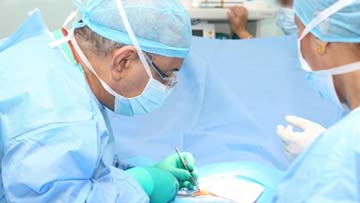Number of people donating organs after death falls
UK – The 3% drop has led to fewer transplants taking place, prompting calls for families to ensure they discuss donation
The number of people in the UK donating organs after their death fell by 3% last year – the first drop in 11 years. The decline has led to fewer transplants taking place and prompted calls for families to ensure they discuss the issue and know their relatives’ wishes.
NHS Blood and Transplant (NHSBT), which runs the service and published the report, warned that people waiting for transplants would continue to die unless there was a revolution in people’s attitudes.
It said that if there are fewer potential donors then gaining consent or authorisation from everyone is even more important, but the consent/authorisation rate remains “stubbornly” below 60%.
Last year, nearly nine out of 10 families said yes when their loved one’s decision to donate was known, for example either through the NHS organ donor register or after a previous discussion with them. But the report said that even when a decision to donate was known, 120 families felt unable to honour their loved one’s decision to donate, denying them their dying wish to save others after their death.
The British Heart Foundation (BHF) said it was worried by the “desperate shortage” of donors and called on other parts of the UK to follow Wales in introducing a system by which people are assumed to be prepared to donate organs unless they declare otherwise.
It is also concerned by a 12% drop in the number of heart transplants, of which there were 182 last year. There were 286 heart patients still on the waiting list, compared with 126 in 2010 and 88 in 2007, said Simon Gillespie, chief executive of the BHF.
“For many critically ill heart patients a transplant can offer the best chance of long-term survival but there is a desperate shortage of registered donors,” he said.
Transplants, involving 4,431 patients, were down by 5% in the year to the end of March as fewer than three in five families gave their consent for transplanting organs from dead relatives despite strenuous efforts to improve the ratio.
There was a fall in the number of people dying in circumstances where donation could be considered – in a hospital and on a ventilator in intensive care or an A&E department.
There were 1,282 dead donors in 2014-15, 43% of whom were on the organ donation register, and 1,092 living donors, a 5% fall. Potential donors after death dropped to 7,450 in 2014-15, down nearly 9% on the previous year. The number of dead donors whose organs were later judged medically suitable for transplant was lower, at 5,536.
Of the transplants carried out, 3,339 patients benefited from organs from dead donors. A further 1,092 transplants were made possible by living donors who gave a kidney or part of their liver.
There were 6,943 patients on the transplant waiting list at the end of March.
Sally Johnson, NHSBT’s director of organ donation and transplantation, said: “We have always known that because the opportunities are so small, it is essential to increase the number of people who say yes to organ donation. If the pool of potential donors is reduced then this is even more important.”
Recognising that families were expected to consider donation “in their darkest hour”, Johnson said: “The decreases we see across all types of organ transplant will lead to more deaths if we do not reverse this trend. We know there is a combination of reasons for the decreases, but we cannot hope to save more lives unless UK citizens talk about organ donation with their families and agree to donate if ever they are asked.”
Wales is to introduce a system of “deemed consent” for organ donation from December. This means that unless people have registered a clear decision on the issue, either for or against, they will be regarded as having no objection to being a donor.
Across the UK as a whole, ministers have been increasing the use of “nudge” tactics across government websites to prompt users to join the organ donor register, which contains 21 million names.
NHS guidance was issued to staff in 2013, urging them to stress the benefits of transplantation more firmly to bereaved families while also warning against coercion.
Requests for donation last year were made to 3,295 bereaved families. Consent was given in 1,923 cases and transplants happened in 1,282 cases. The chances of obtaining consent are far higher when a specialist nurse in organ donation makes the request rather than other staff, the report found.
Image courtesy of David Castillo Dominici at FreeDigitalPhotos.net


Leave a Comment
You must be logged in to post a comment.